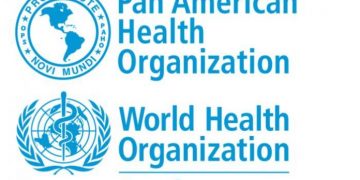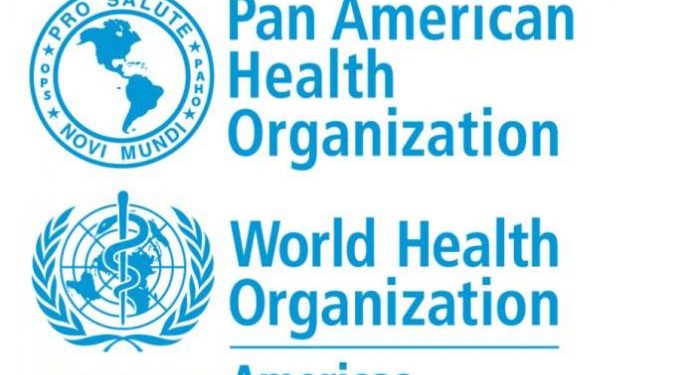On the cusp of Vaccination Week in the Americas, countries need to take innovative safety measures to strengthen flu and measles vaccination to avoid an added burden of vaccine-preventable diseases
(Press release) WASHINGTON, DC – Countries must strengthen vaccination against seasonal influenza and measles to prevent respiratory illness and vaccine-preventable disease outbreaks during the COVID-19 pandemic, say experts at the Pan American Health Organization/World Health Organization (PAHO/WHO).
The recommendations come on the cusp of the 18th Vaccination Week in the Americas, which will take place April 25 – May 2 with the slogan “Love. Trust. Protect. #GetVax.” Since 2003, more than 806 million people of all ages have been vaccinated against a wide range of dangerous diseases under the regional initiative promoted by PAHO.
“Vaccines save lives and must be maintained even during the COVID-19 pandemic. The most vulnerables should not suffer the consequences of not getting the vaccines they need,” said PAHO Director Carissa F. Etienne. “I commend countries in this Region that have already adapted their campaigns to this ‘new reality’ and are making great efforts to keep vaccinating in a safe manner.”
Vaccinating to prevent serious respiratory illness from flu and stop measles outbreaks is key to protecting people while helping health systems focus on the response to COVID-19. Some 17 countries in the Americas have reported they are using the Vaccination Week in the Americas platform to vaccinate against influenza, and other 17 plan to vaccinate against measles.
Three countries in the Americas – Argentina, Brazil and Mexico – are currently battling measles outbreaks, as well as dealing with COVID-19 cases. PAHO has recommended that primary health care providers vaccinate against measles while taking measures to protect communities and health care workers from COVID-19.
Health workers are vaccine heroes
Immunization continues to be an essential service that must continue to keep people healthy and reduce burdens on health services so they can respond more effectively to COVID-19.
“Vaccination is key not just for our communities, but also for our health care workers,” said Cuauhtemoc Ruiz Matus, head of the Comprehensive Family Immunization program at PAHO. “We vaccinate to protect them just as much as to protect ourselves.” He added that a special focus on influenza vaccination to protect vulnerable populations is advisable this year, given the coming winter in South America and the context of the COVID-19 pandemic.
New approaches to vaccinate
Many countries have adapted creative solutions to continue vaccinating at-risk populations safely during the pandemic. Brazil has set a goal of vaccinating more than 60 million high-risk people – those with underlying conditions, pregnant women, children, health care workers and older adults – against influenza, and is working to meet this goal by vaccinating older adults outside of health centers so they are able to avoid contact with individuals who are sick.
The country has set up vaccination posts in schools that are empty due to COVID-19, and supermarkets and pharmacies. In addition, they are offering drive-through vaccination and vaccination at home for people who are unable to leave their houses for health reasons. Vaccination posts are open for extended hours to avoid crowds. In addition to flu vaccination, Brazil is vaccinating against measles and yellow fever in municipalities where those diseases are circulating.
El Salvador has set up influenza vaccination stations at banks, where older adults often go to get their allowances from the government, as well as in nursing homes. The country is also doing focused outreach to pregnant women.
Likewise, Chile – which has already vaccinated some 2 million people over the age of 65 – is offering drive-through vaccination. Bolivia is sending out immunization brigades to nursing homes and jails to reach at-risk groups, and setting up vaccination posts in banks. Argentina, Colombia and Paraguay are also vaccinating high-risk groups against flu, with Paraguay setting up tents outside of health centers to separate people who are seeking vaccination from ill patients.
Countries are also including messages related to COVID-19 prevention as part of their Vaccination Week campaigns, such as the importance of good hand hygiene and respiratory etiquette, and dispelling myths and misinformation about the disease.
Physical distancing is also affecting this year’s Vaccination Week campaigns, which usually include community activities like health fairs, parades and other community events. With virtual launches suggested by PAHO as a safe way to celebrate vaccines, Paraguay recently held a symbolic launch of the campaign with the president and minister of health that was shared on social media.


















